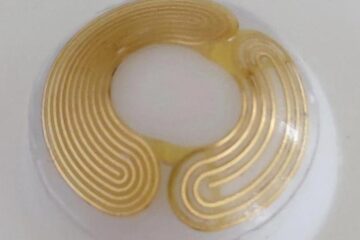Toxic Substances and REACH

The report provides a comprehensive evaluation of national and European environmental policies covering 2004 to 2008. Key sections of the SRU report dealing with German national environmental policy approaches are being made available in English in a series of volumes.
The translation of the third volume is now complete and will be of interest to policy makers and practitioners interested in chemicals policy. The volume covers risk assessment and regulatory evaluation, focusing on selected chemical substances. The first two chapters analyse the possible adverse environmental and health effects of manufactured nanomaterials and brominated flame retardants and makes recommendations for risk reduction measures.
In the third chapter, the entry into force of the European Chemicals Regulation REACH is taken as an occasion to describe the basic structures of this new regulation and to acknowledge the opportunities it provides to improve chemical safety. Nevertheless, the SRU warns that capacity problems at the European Chemicals Agency (ECHA) and in the Member States may arise and these could weaken the implementation of REACH. The final two chapters examine the existing and planned regulations for pesticides and for mercury. The Council concludes in both cases that the efficacy of the regulation with regard to environmental protection is not sufficient and recommends additional measures.
Volume 3 can be downloaded at:
http://www.umweltrat.de/cae/servlet/contentblob/732840/publicationFile/
39378/2008_Environmental_Report_Vol_3_selected_chapters.pdf
The Advisory Council on the Environment (SRU) was founded in 1971 to advise the German government. The Council is made up of seven university professors from a range of different environment-related disciplines. This ensures an encompassing and independent evaluation from a natural scientific and technical as well as from an economic, legal, ethical and political science perspective.
The Council has currently the following members:
Prof. Dr. Martin Faulstich (Chair), Technische Universität München
Prof. Dr. Heidi Foth (Vice Chair), Universität Halle-Wittenberg
Prof. Dr. Christian Calliess, Freie Universität Berlin
Prof. Dr. Olav Hohmeyer, Universität Flensburg
Prof. Dr. Karin Holm-Müller, Rheinische Friedrich-Wilhelms-Universität Bonn
Prof. Dr. Manfred Niekisch, Zoologischer Garten Frankfurt
Prof. Dr. Miranda Schreurs, Freie Universität Berlin
For further information about the SRU, please consult: http://www.umweltrat.de (the english website will be available starting in October)or Dr. Christian Hey at 0049 (0) 30 26 36 96 0.
Media Contact
More Information:
http://www.umweltrat.deAll latest news from the category: Life Sciences and Chemistry
Articles and reports from the Life Sciences and chemistry area deal with applied and basic research into modern biology, chemistry and human medicine.
Valuable information can be found on a range of life sciences fields including bacteriology, biochemistry, bionics, bioinformatics, biophysics, biotechnology, genetics, geobotany, human biology, marine biology, microbiology, molecular biology, cellular biology, zoology, bioinorganic chemistry, microchemistry and environmental chemistry.
Newest articles

‘Smart’ contact lenses could someday enable wireless glaucoma detection
Most people with early-stage glaucoma don’t know they have it, even though early treatment is key to reducing vision loss. While detecting a subtle increase in eye pressure helps doctors…

New tech may lead to smaller, more powerful wireless devices
Good vibrations… What if your earbuds could do everything your smartphone can do already, except better? What sounds a bit like science fiction may actually not be so far off….

Caution, hot surface!
An international research team from the University of Jena and the Helmholtz Institute Jena are demystifying the mechanisms by which high-intensity laser pulses produce plasma on the surface of solids….





















